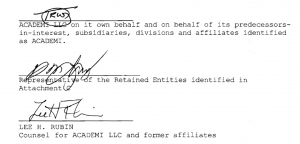With the Upcoming Concord Consulting Not Guilty Plea, Russians Continue to Win the Lawfare Hockey Title
Last year, I observed how effective the mostly-Russian (with some assistance from Republicans) lawfare surrounding the Steele dossier had been. Between the Webzilla and Alfa Bank suits against Steele dossier actors (the latter advised by top Republican lawyers at Kirkland & Ellis), they forced out information that would embarrass Democrats and assist Republican efforts to undermine the Russian investigation. Further, the many suits were far more costly than the initial oppo research had been.
As a number of outlets have observed, one of the firms named in the Internet Research Agency indictment, Concord Management and Consulting, is waging similar lawfare in response to that indictment.
Concord is the firm of Yevgeniy Prigozhin, often called Putin’s chef because he’s gotten rich of catering contracts. The indictment claims Concord provided the bulk of the funding for the IRA. It further alleges Concord funds disinformation campaigns not just targeting America, but targeting other countries and domestic Russian audiences.
Beginning as early as 2014, Defendant ORGANIZATION began operations to interfere with the U.S. political system, including the 2016 U.S. presidential election. Defendant ORGANIZATION received funding for its operations from Defendant YEVGENIY VIKTOROVICH PRIGOZHIN and companies he controlled, including Defendants CONCORD MANAGEMENT AND CONSULTING LLC and CONCORD CATERING (collectively “CONCORD”). Defendants CONCORD and PRIGOZHIN spent significant funds to further the ORGANIZATION’s operations and to pay the remaining Defendants, along with other uncharged ORGANIZATION employees, salaries and bonuses for their work at the ORGANIZATION.
[snip]
Defendants CONCORD MANAGEMENT AND CONSULTING LLC (Конкорд Менеджмент и Консалтинг) and CONCORD CATERING are related Russian entities with various Russian government contracts. CONCORD was the ORGANIZATION’s primary source of funding for its interference operations. CONCORD controlled funding, recommended personnel, and oversaw ORGANIZATION activities through reporting and interaction with ORGANIZATION management.
CONCORD funded the ORGANIZATION as part of a larger CONCORD-funded interference operation that it referred to as “Project Lakhta.” Project Lakhta had multiple components, some involving domestic audiences within the Russian Federation and others targeting foreign audiences in various countries, including the United States.
Among the details in the indictment that would require the most SIGINT (as distinct from cooperation from Facebook and domestic forensics analysis) is a paragraph describing the funding behind the operation.
To conceal its involvement, CONCORD labeled the monies paid to the ORGANIZATION for Project Lakhta as payments related to software support and development. To further conceal the source of funds, CONCORD distributed monies to the ORGANIZATION through approximately fourteen bank accounts held in the names of CONCORD affiliates, including Glavnaya Liniya LLC, Merkuriy LLC, Obshchepit LLC, Potentsial LLC, RSP LLC, ASP LLC, MTTs LLC, Kompleksservis LLC, SPb Kulinariya LLC, Almira LLC, Pishchevik LLC, Galant LLC, Rayteks LLC, and Standart LLC.
Presumably, the Mueller team named Concord and Prigozhin because doing so would support sanctions against him and his companies (indeed, Prigozhin was added to sanctions back in March). But it was also a way to put the operation within the immediate vicinity of Putin and tie it to the patronage that he uses to stay in power.
But then the corporate person of Concord Consulting unexpectedly started to contest the charges. On April 11, two lawyers from Reed Smith filed an attorney appearance for the firm. That same day, the lawyers sent Mueller’s team two letters, one asking for a Bill of Particulars and the other an expansive discovery request. Mueller’s team (having previously tried to serve Concord via the Russian government) then sent a letter to the lawyers, asking for confirmation they can receive summons for their client, which the lawyers returned it 10 days later, saying it violated Federal Rules of Criminal Procedure. The government, based on the returned summons, asked for a continuance to make sure that summons had been accepted.
Acceptance of service is ordinarily an indispensable precondition providing assurance that a defendant will submit to the jurisdiction of the court, obey its orders, and comply with any judgment. Here, proper service is disputed. It would not be an efficient use of resources to conduct proceedings against Concord clouded by the question whether Concord has been properly served. And as mentioned above, that is particularly true given the sensitive intelligence gathering, national security, and foreign affairs issues presented by defense counsel’s initial requests.
Concord’s lawyers responded by arguing the Special Counsel was ignoring local rules requiring two weeks advance notice to make a scheduling change, and further noting the government had not cited any case law supporting the argument that there might be uncertainty about whether Concord had been served.
The Special Counsel is not entitled to special rules, and is required like the Attorney General to follow the rules of the Court. See United States v. Libby, 498 F.Supp.2d 1, 10-11 (D.C.C. 2007).
The Special Counsel’s motion, filed late on a Friday afternoon, essentially seeks to usurp the scheduling authority of the Court by requesting a continuance of a proceeding scheduled in five days knowing that Defendant is ordinarily entitled to fourteen days to respond.
The Special Counsel’s motion is in violation of Local Criminal Rule 47(b) in that its contains no citation to points of law and authority and instead proclaims without citation to any authority that “A criminal case against an organizational defendant ordinarily requires that the defendant has been properly served with a summons in order for the court to be assured that the defendant has submitted to the jurisdiction of this court and has obligated itself to proceed in accordance with the Federal Rules of Criminal Procedure and other applicable laws that govern this criminal proceeding,”
Judge Dabney Friedrich denied the government motion, meaning there’ll be an initial appearance Wednesday.
Before looking at what Concord is trying to do with its discovery request, let’s take a step back.
The US has been charging Russian hackers and other criminals (like Viktor Bout) for years. Russia hates it. Even ignoring the number of Russian criminals we’ve imprisoned for long sentences, in cases where we don’t nab defendants while on vacation, the indictments still provide the US a forum to expose Russian intelligence activities with little cost to the US.
Charging a corporate person — one close to Putin — for a crime (information operations) that the US also engages in, the government provided Putin and his ally Prigozhin with an opening to either inflict some damage or force the government to withdraw the indictment (and think twice before indicting any other Russian corporations in other Russian investigation indictments).
Here’s some of what Concord is asking for:
Unnamed co-conspirators. When Rod Rosenstein announced this indictment, he emphasized that no Americans were named as co-conspirators in the indictment. That’s different than saying no Americans did conspire (indeed, I’ve noted that three Trump Campaign Officials described in the indictment may be under ongoing investigation). The motion for a Bill of Particulars asks for the identities of those three Trump Campaign Officials, as well as the identities of at least ten other Americans described specifically, and 100 recruited by IRA (described in ¶81). It also asks for the name of co-conspirators for an act, ¶7 of the indictment, who were required to register even though no co-conspirators are alleged to have to do so. Intriguingly, it asks not just for the identity of the real US person who held a sign in front of the White House (¶12b), but also all details surrounding the communications behind that appearance.
Related crimes the government will introduce at trial. The discovery request makes a very normal Rule 404(b) request for any “other crimes, wrongs, or acts” the government might introduce at trial. If Mueller’s team believes anyone in this indictment was involved in other parts of the operation, they might have to disclose that.
SIGINT. The request for a Bill of Particulars asks the government to identify all VPNs, PayPal accounts, Twitter accounts, and web-based emails used in the operation. It asks for the IDs of the people behind the operation and a definition of what significant funds means which would convey how much money Mueller has tracked. It asks for the specific bank accounts the indictment alleges Concord used to launder its money. It asks for specific evidence showing Prigozhin’s knowledge of the operation. It asks for all the communications behind the named events in the indictment. Showing this would provide Concord, and so Prigozhin, and so Putin, a very detailed picture of how much intelligence the US collected to draw up this indictment, which would also hint a lot about how we got it.
Details they will use to show US double standards. This includes a request for all the times since 1945 an agent of the US “engaged in operations to interfere with elections and political processes in any foreign country,” which is probably a reference to this study that shows CIA has done it more than Russia, along with a parallel request about any times Americans have been charged under the same crime, 18 USC 371, charged in the indictment. It also asks for a definition of a bunch of terms — such as “improper foreign influence,” “computer infrastructure,” “collecting intelligence,” and “began to monitor” that Russia will then use to point out where US spooks do the same. The request asks for a list of all criminal statutes that prohibit interference operations, the specific statutes behind the FECA, FARA, and visa violations alleged, as well as statutes that prohibit “impairing, obstructing and defeating the lawful governmental functions of the US … [by] interfer[ing] with US political and electoral processes. Together, those requests are designed to show that much of this stuff is either legal or spying.
The names of informants. Concord asks for this both as a general Brady request and asks for the specific name of the uncharged co-conspirator who traveled to Atlanta in 2014 in the request for a Bill of Particulars. While Prigozhin probably knows which Russians cooperated, Russia will nevertheless love to use that to punish whoever did.
While neither will happen immediately — Mueller’s team will push for a protection order and CIPA process before turning over the requested discovery and defendants almost never get a Bill of Particulars — effectively, Concord signaled its intention to impose real costs on the US government’s use of our criminal justice system to embarrass Russia. They made it clear that one of Putin’s closes allies will be demanding the intelligence behind an indictment naming him and two of his companies. Which is going to pose real discomfort for Mueller’s team (which might explain a bit of their delay here).
Let me clear: Concord is entirely within its right to begin demanding such evidence. That’s the risk of using our criminal justice system, affording due process, in charging a Russian corporate person who can challenge any charges without risking their freedom. I imagine Mueller’s team didn’t sufficiently account for this possibility when charging it this way. And if there are any other known Russian corporations involved in this operation (or fronts, such as the one Joseph Mifsud worked behind), I would imagine Mueller’s team is rethinking their approach to including those fronts. This could be problematic to the extent that proving any “collusion” between Trump’s people and Russians would most easily be demonstrated via conspiracy charges involving Russian entities.
As I said, for years, it has pissed off Russia generally and Putin in particular that the US used its criminal justice system to embarrass Russia, particularly for actions (like nation-state spying or information warfare like that alleged in this indictment) that we also engage in, including against Russia. It seems clear Putin and his buddy Prigozhin are using the incidence of the latter having had his company be named in this indictment as an opportunity to retaliate and make DOJ think twice as it continues to expand such efforts in the future.
And to a large degree, it’s quite likely to work.



